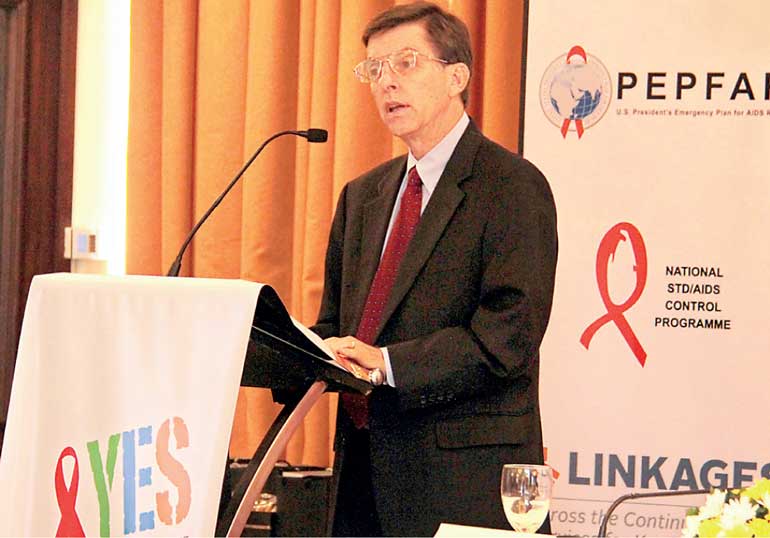Wednesday Feb 18, 2026
Wednesday Feb 18, 2026
Wednesday, 13 December 2017 00:00 - - {{hitsCtrl.values.hits}}


On 8 December, the Governments of Sri Lanka and the United States launched a two-year HIV/AIDS Technical Assistance Partnership to fast track Government efforts to end AIDS by 2025.
The US Government’s development agency – US Agency for International Development (USAID) – through the President’s Emergency Fund for AIDS Relief (PEPFAR), will help to transfer promising solutions, new technical skills and innovations to contribute towards ending AIDS in Sri Lanka.
“USAID Sri Lanka has been working closely with the Government of Sri Lanka on a number of social and economic development efforts. This partnership is very important as Sri Lanka moves down the path to ending the spread of AIDS,” said Dr. Andrew Sisson, Mission Director, USAID Sri Lanka.
Mark Anthony White, Mission Director, USAID India, added: “USAID India is happy to partner with USAID Sri Lanka to support this important initiative to strengthen the HIV response, especially for key populations. We hope this leads to more health collaborations between India and Sri Lanka.”
Also speaking at the launch, Janaka Sugathadasa, Secretary of Health, Ministry of Health said, “When it comes to HIV/AIDS, we must have a new approach. The public health approach has to be coupled with a societal approach.”
The two-year USAID partnership with Sri Lanka will work in close collaboration with key stakeholders in the country – National STD/AIDS Control Program (NSACP) Sri Lanka; the Global Fund to fight AIDS, Tuberculosis and Malaria (GFATM); and civil society organisations – to improve access to HIV/AIDS prevention, care and treatment services for at-risk or key populations (KP) due to their increased vulnerability for contracting/transmitting the HIV virus.
USAID assistance will support the design and roll out of KP-specific strategic behavior change communication materials and a social media communication strategy; HIV services through different KP-friendly community and clinic-based approaches, and improve HIV prevention and testing services through innovative solutions involving private medical practitioners and approaches to reach hidden KP groups.
The Government of Sri Lanka is committed to ending AIDS in country by 2025, ahead of the UN’s Global Commitment to end AIDS by 2030.